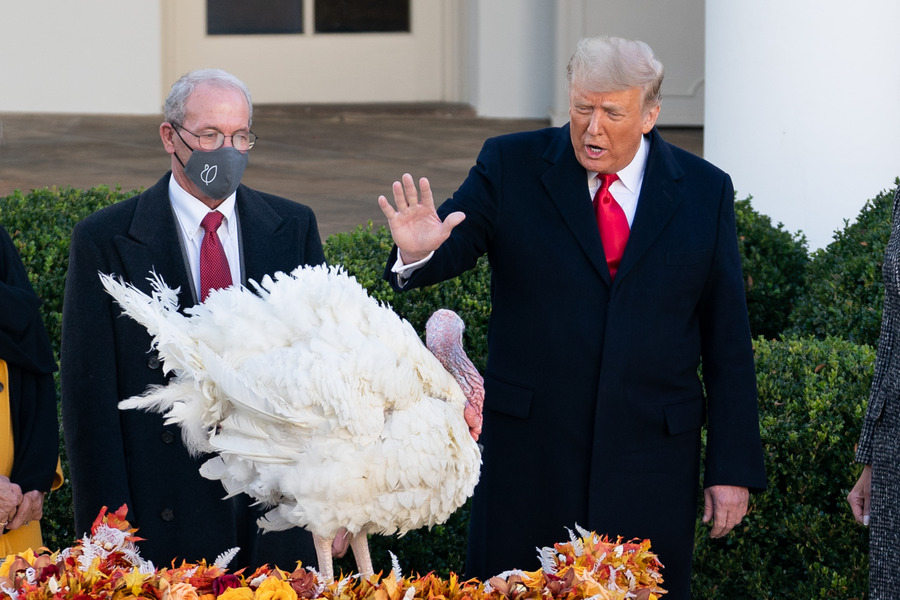Peter Baker on Mounting Criticisms of Obama Administration CT Policies
Peter Baker, who is finishing a book on the Bush Presidency, has a long front-page article in the New York Times today entitled "Obama's Turn in Bush's Bind" discussing how the mounting domestic and international criticism of the Obama Administration's counter-terrorism policies (especially drones) is reminiscent of the criticisms leveled against the Bush Administration.
One of Baker's more interesting observations -- and one of the first times I have seen this in print, although it is a
Published by The Lawfare Institute
in Cooperation With

Peter Baker, who is finishing a book on the Bush Presidency, has a long front-page article in the New York Times today entitled "Obama's Turn in Bush's Bind" discussing how the mounting domestic and international criticism of the Obama Administration's counter-terrorism policies (especially drones) is reminiscent of the criticisms leveled against the Bush Administration.
One of Baker's more interesting observations -- and one of the first times I have seen this in print, although it is a subject of some discussion among Bush Administration officials -- is that civil liberties groups have taken it easy on the Obama Administration:
For four years, Mr. Obama has benefited at least in part from the reluctance of Mr. Bush’s most virulent critics to criticize a Democratic president. Some liberals acknowledged in recent days that they were willing to accept policies they once would have deplored as long as they were in Mr. Obama’s hands, not Mr. Bush’s. “We trust the president,” former Gov. Jennifer Granholm of Michigan said on Current TV. “And if this was Bush, I think that we would all be more up in arms because we wouldn’t trust that he would strike in a very targeted way and try to minimize damage rather than contain collateral damage.”Presumably for the same reason, European governments, who were unrelenting in their criticism of Guantanamo and other Bush Administration counterterrorism policies, have simply looked the other way as most of those same policies have continued (or, in the case of drones, dramatically increased). One does wonder whether the Nobel Prize Committee is suffering from at least a modicum of buyer's remorse. As the Obama Administration begins its second term, the big question now is whether the domestic and international criticism will snowball and, if so, how the Administration will respond. Even if the Obama Administration does begin to face the same criticisms as its predecessor, fortunately its officials are unlikely to be subjected to the same ad hominem attacks as those directed at Bush Administration officials. Many critics seem to believe that President Bush and Bush Administration officials were inherently bad people (and hence were fair game for personal attacks), whereas Obama Administration officials are inherently more virtuous and have simply (albeit perplexingly) pursued misguided policies (or been stymied by the bureacuracy). My former NSC colleague Peter Feaver makes a similar point in Baker's article, noting that Obama himself "believed the cartoon version of the Bush critique so that Bush wasn't trying to make tough calls how to protect America in conditions of uncertainty. Bush actually was trying to grab power for nefarious purposes." As a result, the new criticisms have been directed at the Obama Administration's policies, rather than its officials. As someone who would like to see more personal civility and less partisanship in national security matters, I hope this remains true. The contrasts, however, are noteworthy.
John B. Bellinger III is a partner in the international and national security law practices at Arnold & Porter in Washington, DC. He is also Adjunct Senior Fellow in International and National Security Law at the Council on Foreign Relations. He served as The Legal Adviser for the Department of State from 2005–2009, as Senior Associate Counsel to the President and Legal Adviser to the National Security Council at the White House from 2001–2005, and as Counsel for National Security Matters in the Criminal Division of the Department of Justice from 1997–2001.





